It was over a year ago that I first suggested to the editor the idea behind this test. It was to pitch the most analogue version of Porsche’s most traditional offering against its most modern.
This was more than just petrol versus electric, it was analogue versus digital, a rear-drive car with an internal combustion engine and a manual gearbox lobbed at an all-electric four-wheel-drive technology showcase without so much as a flappy paddle to cover its modesty.
But then various things happened, a global pandemic among them. Porsche also found itself flat out just satisfying demand for two-pedal Porsche 911s and then, when the manual did come on stream, they all went to the US, which is by far the biggest market for such cars. And finally, when three-pedal 992s made their way over here, Porsche thought it best to get its cars to its most loyal and patient customers first and onto its press fleet second. Which is probably fair enough.
You may also look at their relative specifications and wonder why we bothered. After all, one has four doors and the other just two. The Porsche Taycan is getting on for half a metre longer (almost all in the wheelbase), more than 10cm wider, nearly 8cm higher and, get this, 740kg heavier. There are entire cars that weigh less than that. Should we not be putting it up against something else instead, like a Porsche Panamera?
Well, maybe, and perhaps one day we will. But today this isn’t so much a comparison of cars as concepts. It is, I think, now broadly accepted that, rightly or wrongly and for good or ill, electric cars like the Taycan will replace pure ICE cars like the 911 and, in the context of the history of the automobile, not long from now. So how much further does the finest of the new breed still have to be before it’s just a better option for most people most of the time than the best that the traditional approach has been able to yield? In short, can revolution eclipse evolution?
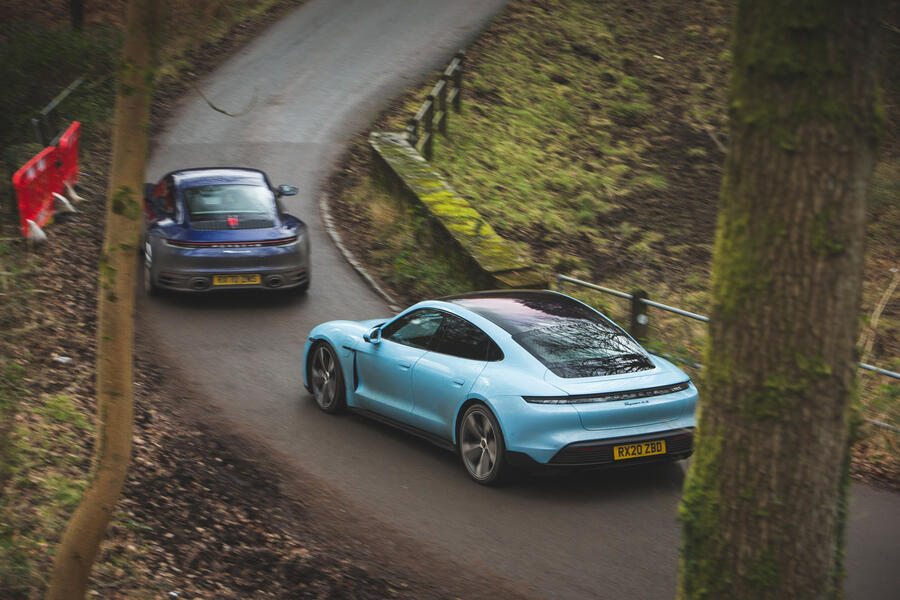

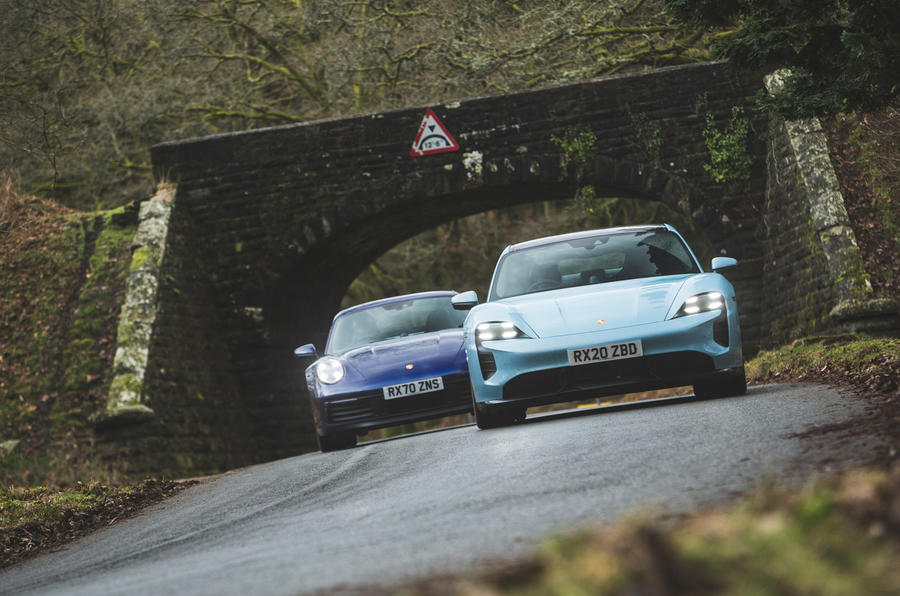

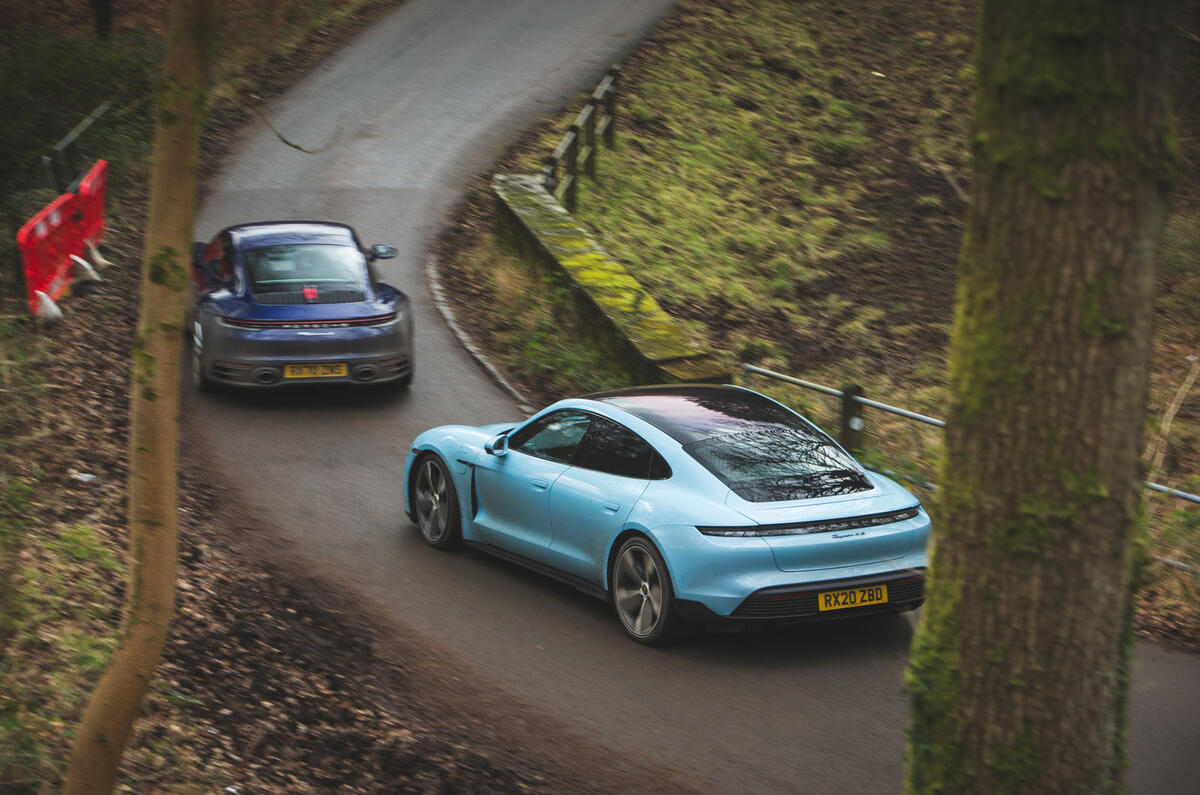












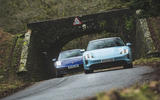















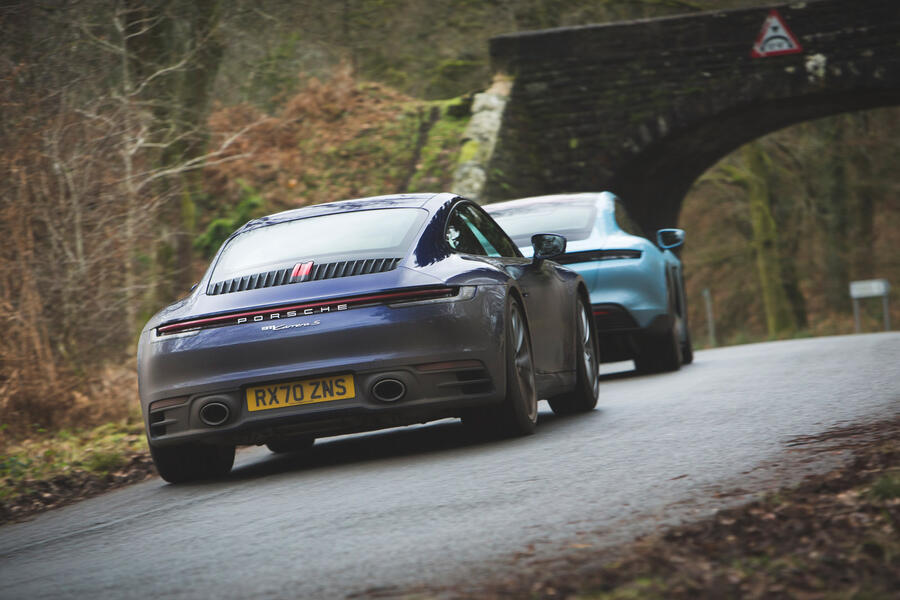
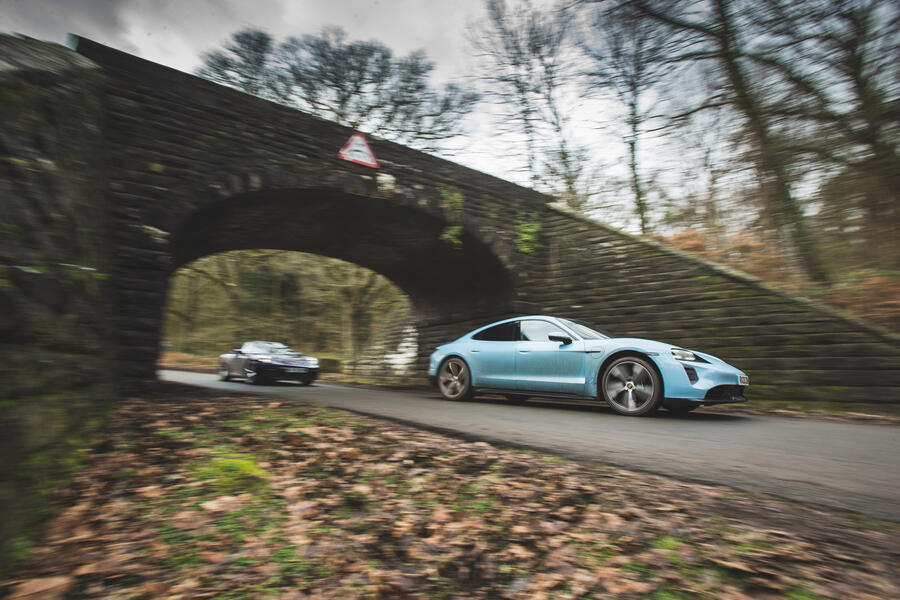
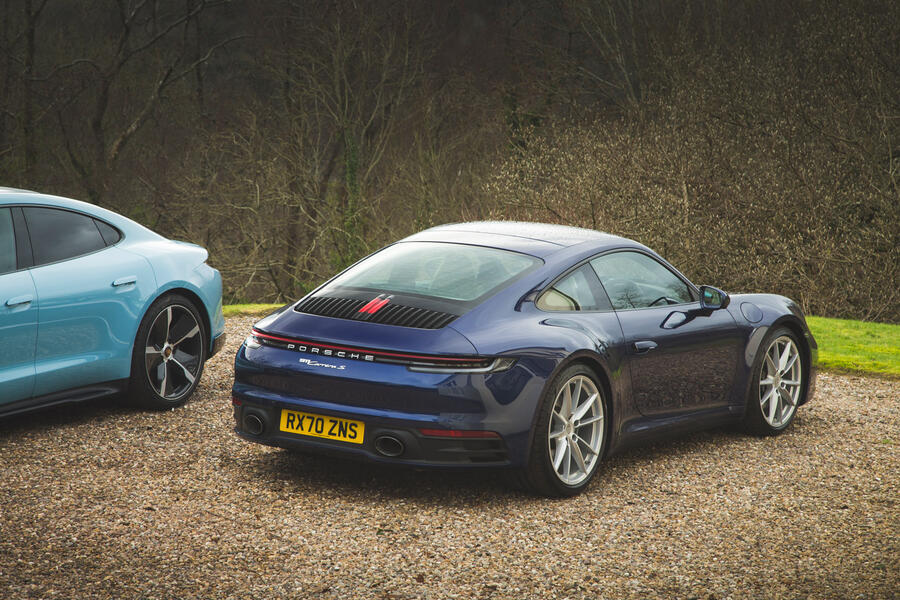


Join the debate
Add your comment
All of which begs the question - why hasnt soneone made an involving electric car ? Why are they devoid of driver involvement ? I really cant see any reason why they should be.
EVs are boring.
A Car to suit every Porsche lover?, well, why not?, your not every time you get in and drive it like you just stole it,fact, most of the time you'll be like the rest of us, barely getting near the National speed limit,so, I'd say the Taycan is the tool for the job, if you want a 911, then on the occasion you take it out you'll get a more involving drive, but, not on the public highway.